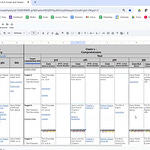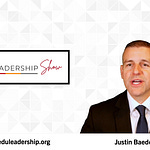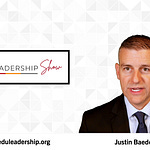Twitter: Alpha School students score in the 98th percentile
UCSD Senate-Administration Workgroup on Admissions Final Report (PDF)
A ‘Steep Decline’ in Students’ Academic Preparation at UC-San Diego Struck a Nerve
Full Transcript:
Speaker 1 (00:00):
Welcome to the Eduleadership Show. I’m your host, Justin Baeder, and in this episode we’ll talk about the challenges of researching micro schools. We’ll talk about math preparedness among incoming students at the University of California at San Diego, and we’ll talk about how Sweden is rolling back the high tech childhood. Let’s get to it. First up, a new article in the 74 million argues that researchers are finding it nearly impossible to gauge the impact of micro schools. Micro schools are popping up all over the place. A lot of states have new laws and new access to funding that is causing micro schools to proliferate phenomenon that really took off during the pandemic, but has stuck around. And as Linda Jacobson explains, in the 74 million, it is actually very difficult to study the impact that those micro schools are having. She says that researchers at the RAND Corporation actually had to give up their original plan to study the data from those schools because the data mostly did not exist, and they instead had to shift their focus to why it’s difficult to study micro schools.
(01:25):
Apparently the primary reason for the lack of data said one researcher is that a large number of micro schools are not opting in to do these assessments in the first place. So in order to be able to show growth, a school has to have its students take say the NWEA MAP exam twice, once in the fall and once in the spring. And they found that out of 271 schools that they set out to study, only 10 had the necessary data. And a lot of this, I think, comes down to the fact that parents who put their kids in micro schools often are opposed to testing. The article quotes one spokesperson as saying, others argue that parents are the best judge of whether their children are learning. The number one measure that we have to demonstrate that these programs are working is that the parents are happy according to Lindsay Burke, who’s quoted in the article.
(02:16):
And obviously if these are private schools that parents are paying for, well, their opinions are valid, that’s worth paying attention to. But if these are schools that are receiving public funds, that makes it incredibly likely that there is going to be more scrutiny, that there is going to be more demand for accountability. And so far, researchers are not really able to assess the quality or impact of micro schools because that data is not available. So watch this space. I said we’d be talking about this last week when I talked about Alpha School and Alpha School seems to still be at it. They seem to have their developers and other team members touting the benefits of Alpha School on social media by saying things like Alpha School students score and the 98th percentile on standardized tests. I’ve heard things like that from numerous people at Alpha School.
(03:06):
I think maybe the school is putting them up to saying these things. And yet, as we talked about last week here on this show, alpha School has declined to provide Wired Magazine with proof of its claims with internal evidence that it is doing what it is claiming to do as far as accelerating students and getting them to learn much faster. I think what is much more likely to be going on with that 98th percentile claim if it’s true, which I don’t have any reason to believe it’s not true. I think what’s probably going on there is that this is a selection effect. Alpha School is $40,000 a year. They have one campus in Brownsville, Texas that’s $10,000 a year. And whenever you’re charging that much tuition, you are strongly skewing your student population toward kids who are already at the 98 percentile. So we’re not really able to assess the impact of the school itself or the impact of the model that’s heavily driven by AI that’s used in alpha and similar schools.
(04:01):
Next up, faculty at the University of California at San Diego have sounded the alarm that students are coming in with very inadequate preparation in mathematics. And this began going back to 2016. The faculty has pretty good procedures in place for screening and placing students in math classes. And they have had for a long time some remedial classes to catch kids up if they’re admitted, but then they need some foundational work to get them ready for college math. Well, according to the new senate administration work group on admissions, which released their report just earlier this month, they said in the fall of 2022, the number of students placed into the remedial course Math two rose from about 100 to nearly 400 and by the following year to about 500 students. And that was just far more than they were prepared to teach. They really had to scramble.
(04:56):
And one thing that’s going on here is that in 2021, the University of California system made the decision to stop considering SAT and a CT scores at all. So that put the University of California campuses in a position of relying on high school grades much more heavily to make admissions decisions. And that means that we’re getting kids with bigger and bigger gaps. The report says alarmingly the instructors running the 2023 and 2024 math two courses, the remedial course that was intended to cover high school concepts observed a marked change in the skill gaps compared to prior years. Now, most students had knowledge gaps that went back much further to middle and even elementary school, elementary school gaps among students who are admitted to a highly selective flagship state university. I think there is really no escaping the need to go back to the SAT and A CT in order to identify kids who are adequately prepared for the rigors of a particular college program.
(05:57):
And of course, there are lots of University of California systems. There’s a robust state university system, community college system, as well as the flagship uc system. But I don’t see any way to distinguish between the many, many high school students who have very strong GPAs due to grade inflation without using a standardized test like the SAT or the A CT. But let me know what you think. Lastly in after Babel, the Substack publication by Jonathan Het of the anxious generation author, Linda McGirk argues that Sweden is going back on the digital childhood. She explains how she moved her family to Sweden in roughly 2018 and was just really surprised at how tech friendly everything was and how students had just adopted technology at an incredible and harmful rate to an excessive degree with middle school kids on Snapchat and kids on their devices all day in school and just far too much screen time.
(06:57):
Well, Sweden is a small country and not one to shy away from bold social experimentation. And she reports now on how Sweden is pulling the plug on technology in childhood and going back to their roots as being a very nature centric and free play based society. And she says that the idea that students should play a lot in nature was kind of applied unthinkingly to the internet and to devices and that students were just kind of let free to do their own thing on technology. And that did not go the way people expected it to go. Letting kids play outside is one thing, letting them roam freely online is quite another. And she says that screens were challenging one of the most quintessentially Scandinavian things, the nature-based childhood. So their society has made quite a few changes in recent years, including implementing phone bans all the way up to away for the day policies coming soon nationwide in Sweden, they are returning to physical textbooks and getting away from laptops and things like that that put students on devices during the day and going back to pencil and paper materials.
(08:07):
And they are increasingly educating parents about how much kids should be on technology at different ages. So I think these are all really encouraging signs for our society in the US where we can make many of the same choices. We have many of the same issues going on where we’ve gone too far, where technology for kids, including at school, including at home, including for very, very young children. And we can roll this back. I’m thinking about how we dealt with the crisis around the hole in the ozone layer many, many years ago. Something that you may have even forgotten about. But there was a hole in the ozone layer caused by chloral fluorocarbons, which we banned and it worked, right? We rolled the problem back and it worked. And I think we’re seeing the same thing starting to happen with kids and screen time. But let me know what you, lastly, make sure you subscribe to all of our other shows here at The Principal Center.
(08:59):
We’ve got the teaching show at teachingshow.com and have been having a great time interviewing classroom teachers about their practices that they use in their particular subject. I’ve been having a great time as well with Principal Center Radio now with over 500 episodes in the archives, featuring interviews with authors and leading experts in their fields. And lemme know if you have guest recommendations or if you’d like to hear me talk about a book on Principal Center Radio, we’ll try to get the author on for an interview. And lastly, we have a couple of members only shows called the Instructional Leadership Show, which is all about classroom walkthroughs and making time for instructional leadership and dealing with that core work of teacher supervision and evaluation and professional growth. And we are bringing back one of our members only shows called Ascend Live. And if you watch for the links carefully, sometimes you can attend that live for free.
(09:51):
And then we have the recordings in our members only archive. And Ascend Live is all about the admin job search, and I’m particularly excited to expand our focus a little bit to talk about having a job created for you if you’re looking to stay within your organization, but move into a slightly different type of work or take on some additional leadership responsibilities. So keep an eye out for Ascend Live and our related job search trainings and shows. That’s it for this episode of the Eduleadership Show. I’m Justin Baeder and I’ll see you next time.










